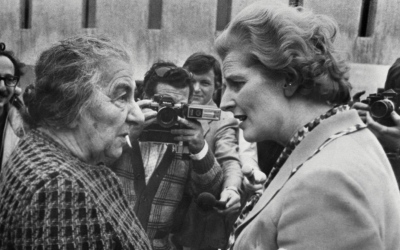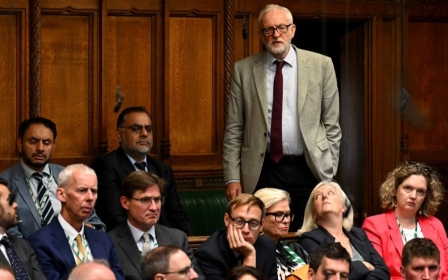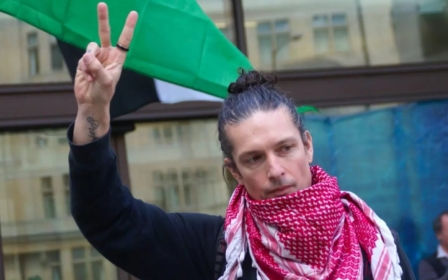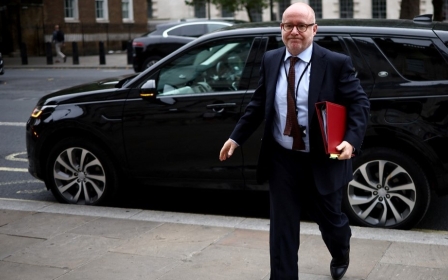UK suspends 30 arms exports to Israel over Gaza war crimes concerns
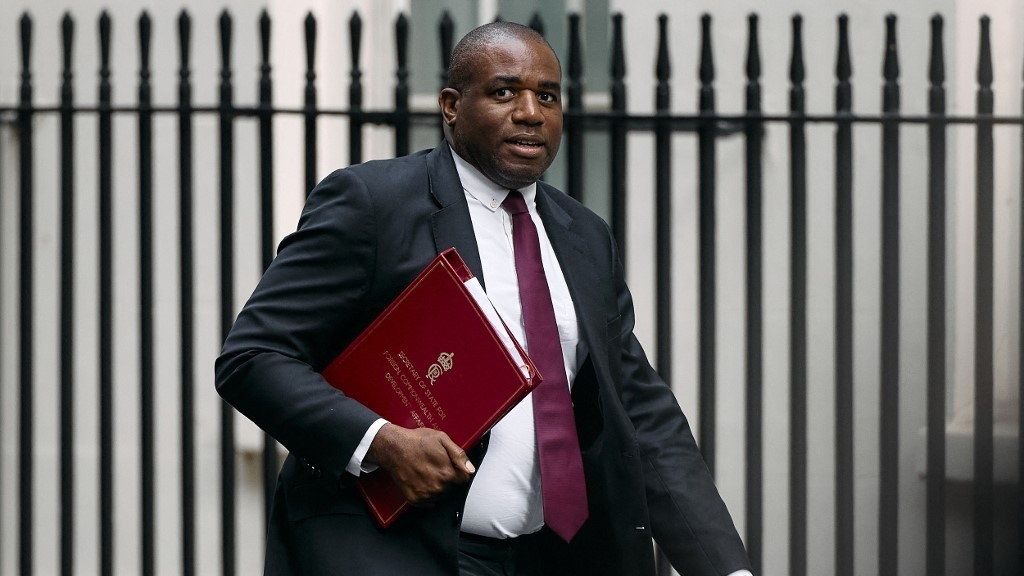
The UK has suspended 30 arms export licences to Israel following a review under the new Labour government which found that British-made weapons may have been used in the violation of international humanitarian law in Gaza.
Arms campaigners and rights advocates who have pressed for a full suspension of arms sales to Israel for months welcomed the decision, but criticised the continued export of F-35 fighter jet components which one called "a workhorse of Israel’s brutal bombing campaign".
The suspension, announced by Foreign Secretary David Lammy in parliament on Monday, covers components for other types of military aircraft, including fighter planes, helicopters and drones. Around 320 other licences, including for items for civilian use, remain in place.
Under its arms exporting criteria, the government is obligated to suspend licences for arms exports if it determines that there is a clear risk that British weapons might be used in serious violations of international humanitarian law.
“Facing a conflict such as this, it is this government’s legal duty to review export licences," Lammy told MPs.
New MEE newsletter: Jerusalem Dispatch
Sign up to get the latest insights and analysis on Israel-Palestine, alongside Turkey Unpacked and other MEE newsletters
“It is with regret that I inform the House today the assessment I have received leaves me unable to conclude anything other than that, for certain UK arms exports to Israel, there does exist a clear risk."
Lammy underlined that the government's review, a summary of which will be published, did not mean that Israel had broken humantarian law and that it was impossible verify all claims.
However, he said, the assessment found "that Israel could reasonably do more to ensure life saving food and medical supplies reach people in Gaza".
Lammy also said the government was "deeply concerned" about reports of mistreatment of Palestinian detainees, which the International Committee of the Red Cross has not been able to investigate after being denied access.
"My predecessor and major allies have raised these concerns," he said of the detainees. "Regrettably, these have not been addressed satisfactorily."
He added that Britain would continue to support Israel if it was under attack, particularly from Iran, announcing fresh sanctions against three members of the Islamic Revolutionary Guard Corps.
"This government will continue to stand for Israel’s security and we will always do so in a manner consistent with our obligations to domestic and international law," he said.
'Took too long, not far enough'
The announcement cames hours before two organisations which have challenged the UK government in the High Court over the continued exports were set to pursue fresh legal action in an attempt to force the exports to stop immediately.
Lawyers with the UK-based Global Legan Action Network (Glan) and the Palestinian human rights group Al-Haq said they told the government last week of their intent to request an emergency order and had planned to do this at a Tuesday morning hearing.
But late on Monday, the organisations said they would now consider whether the announced ban was "extensive enough to meet the gravity of the situation and assess whether further litigation remains necessary".
'The UK government was backed into a corner'
- Dearblha Minogue, Global Legal Action Network
Dearbhla Minogue, a senior lawyer with Glan, said the government's "momentous decision vindicates everything Palestinians have been saying for months".
"The UK government was backed into a corner," she said.
Without F-35 components included in the ban list, campaigners and human rights groups which have called for a blanket end of UK arms exports to Israel sales for months said the announcement fell short.
“The suspension of export licenses took far long and didn’t go far enough," said Yasmine Ahmed, UK Director of Human Rights Watch.
"That the UK government chose to exempt components for the F-35, a workhorse of Israel’s brutal bombing campaign, shows either a miscomprehension of the law or a wilful disregard."
Earlier on Monday, Danish news outlet Information revealed that the Israeli military used an F-35 stealth fighter in a 13 July attack on a designated safe zone in Gaza which killed at least 90 people.
British-made components comprise 15 percent of all F-35 fighter jets, raising questions about whether the news would shift UK arms export policy.
But Lammy said that parts for F-35s, used in a multi-national programme, were not among the items suspended which would "undermine the global F-35 supply chain that is vital for the security of the UK, our allies and Nato".
Sam Perlo-Freeman, research coordinator for Campaign Against Arms Trade, said exempting F-35 parts for Israel was “utterly outrageous and unjustifiable”.
“These are by far the UK’s most significant arms supplies to the Israeli military, and just today we have confirmation that they have been used in one of the most egregious attacks in recent months,” he said.
Anna Stavrianakis, director of research and strategy at UK-based Shadow World Investigations and professor of international relations at the University of Sussex, told Middle East Eye that without the suspension of the F-35 components, the statement “seems more like an attempt to mollify critics than a meaningful restriction on Israel’s ability to commit genocide”.
Chris Doyle, director of the Council for the Advancement of Arab-British Understanding, told MEE it was extraodinary that it had taken "11 months of carnage and atrocities" for the government to come to its conclusions, something he said was "unforgivable".
But he also said the move was a welcome step to build on. "The most crucial element is that for the first time a British government has accepted that Israel was likely to have violated international law in Gaza," he said.
"Which bits of international law? It opens up a conversation."
Labour MP Afzal Khan told MEE he was pleased that Lammy had taken an "important first step".
"Upholding international humanitarian law must be central to any export regime, and it's clear the new Labour government recognises this," Khan said.
"Ultimately, the only thing that will stop innocent Palestinian civilians being killed is an immediate and permanent ceasefire in Gaza, as the Labour Government has been calling for. This must remain our utmost priority."
Josh Paul, the former US official who resigned last October in protest over US arms transfers to Israel, told MEE: "With America's closest ally, the UK, now acknowledging the clear and obvious risk of harm and legal violations inherent in continued arms transfers to Israel, one can only hope the US takes note and follows suit.
"Sadly," he said, "under this president, I do not expect it will."
Middle East Eye delivers independent and unrivalled coverage and analysis of the Middle East, North Africa and beyond. To learn more about republishing this content and the associated fees, please fill out this form. More about MEE can be found here.


